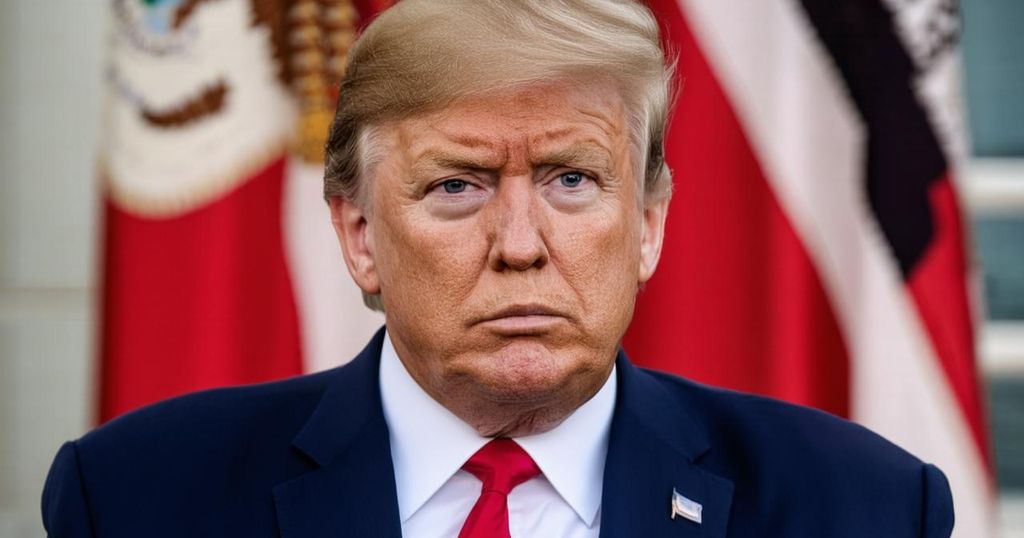Gulf States’ Support for Trump: A Strategic Calculation Amidst Regional Instability

As tensions rise in the Middle East, particularly due to the Israel-Gaza conflict, Gulf states such as Saudi Arabia and the UAE appear to favor Donald Trump over Vice President Kamala Harris in the upcoming U.S. election. Trump’s prior administration provided substantial support, aligning with the Gulf monarchies’ geopolitical aspirations and enhancing their regional power. In contrast, Harris’s expected diplomatic engagement approach may not align with their interests, raising concerns of diminished U.S. support under her leadership.
The geopolitical landscape of the Gulf States, particularly Saudi Arabia and the United Arab Emirates (UAE), indicates a strong inclination toward supporting former President Donald Trump as he campaigns for a return to the White House. This preference is primarily driven by the recent escalation of conflict in the region, particularly the war in Gaza involving Israel and Hamas, which has instilled a sense of instability among Gulf nations. Vice President Kamala Harris, the Democratic nominee, is perceived as less favorable compared to Trump, primarily due to her anticipated diplomatic approach towards Iran and her potential to take a more aggressive stance on regional conflicts, which could contradict the strategic ambitions of the Gulf monarchies. During Trump’s presidency, these nations benefitted from a notable increase in U.S. support, facilitating arms deals and a hardline U.S. stance against Iran, which significantly enhanced their regional influence. Under Trump’s administration, Saudi Arabia and the UAE experienced unprecedented military and economic cooperation with the U.S., culminating in significant arms deals and economic partnerships facilitated by initiatives like the Abraham Accords. In contrast, Harris is expected to revert to the multilateral diplomacy reminiscent of President Obama’s tenure, potentially limiting U.S. support and security commitments to the Gulf states. Moreover, both Saudi Arabia and the UAE are pursuing aggressive military capabilities and regional dominance. The ongoing conflicts, such as those involving Iran’s nuclear ambitions and the wars in Yemen and Sudan, underscore their strategic imperative to maintain strong ties with the U.S., particularly under a Trump administration that has shown a willingness to provide unconditional support. The evolving foreign policy dynamics suggest that under a Trump presidency, the Gulf states may find ample room to consolidate their military and economic agendas with minimal interference. However, this reliance on a transactional foreign policy also raises concerns about escalating rivalries between Saudi Arabia and the UAE, particularly if one nation were to secure a closer relationship with Washington.
The Gulf States, specifically Saudi Arabia and the UAE, are navigating a complex geopolitical landscape marked by regional conflicts, particularly the recent war between Israel and Hamas. As elections approach in the United States, their support for a candidate likely to amplify their strategic interests becomes paramount. During Trump’s presidency, the Gulf States witnessed substantial U.S. military and political support, in stark contrast to the expected policies of the current Democratic administration, which may emphasize diplomatic engagement over transactional alliances. The Gulf monarchies seek stability and security in an increasingly volatile region, aligning with U.S. foreign policy that favors their interests. This context frames their preference for Trump, who embodies a foreign policy approach they believe serves their aspirations more effectively than a potential Harris administration.
Saudi Arabia and the UAE’s inclination toward supporting Donald Trump reflects a broader strategy aimed at preserving and enhancing their regional influence amidst escalating tensions in the Middle East. Their previous experiences under Trump’s administration demonstrated significant gains in military and economic cooperation with the U.S., a trend they fear may not continue under a Democratic administration led by Kamala Harris. As geopolitical dynamics evolve, the Gulf monarchies continue to prioritize strong bilateral relations with the U.S. to safeguard their ambitions and counter perceived threats, particularly from Iran.
Original Source: foreignpolicy.com








